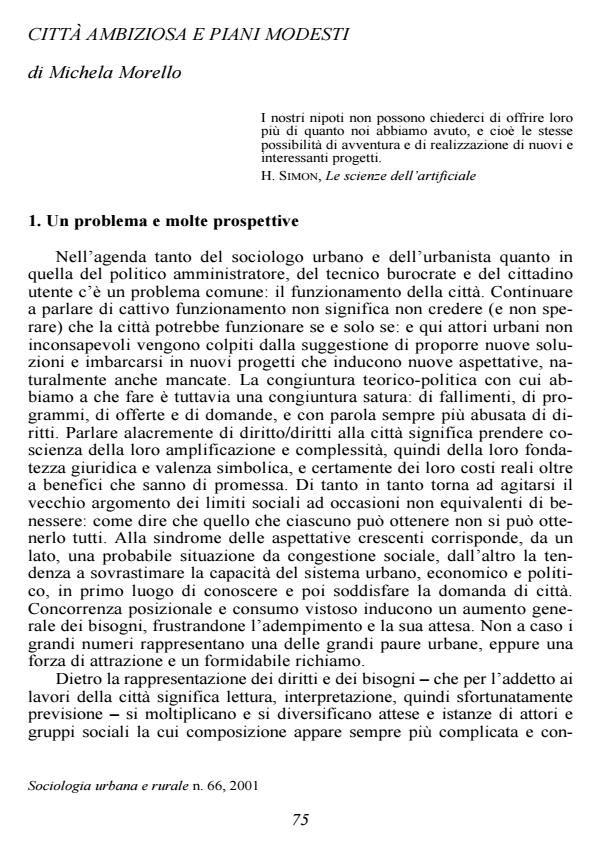Città ambiziosa e piani modesti
Titolo Rivista SOCIOLOGIA URBANA E RURALE
Autori/Curatori Michela Morello
Anno di pubblicazione 2002 Fascicolo 2001/66
Lingua Italiano Numero pagine 28 P. Dimensione file 178 KB
DOI
Il DOI è il codice a barre della proprietà intellettuale: per saperne di più
clicca qui
Qui sotto puoi vedere in anteprima la prima pagina di questo articolo.
Se questo articolo ti interessa, lo puoi acquistare (e scaricare in formato pdf) seguendo le facili indicazioni per acquistare il download credit. Acquista Download Credits per scaricare questo Articolo in formato PDF

FrancoAngeli è membro della Publishers International Linking Association, Inc (PILA), associazione indipendente e non profit per facilitare (attraverso i servizi tecnologici implementati da CrossRef.org) l’accesso degli studiosi ai contenuti digitali nelle pubblicazioni professionali e scientifiche.
The theoretical-political conjuncture which we find ourselves in is saturated with failures, programs, supply and demand, and to beat a dead horse rights. To speak briskly on a right (or rights) to the city is to became aware of their enlarge-ment and complexity, legal basis and symbolic valence, and, surely, real costs be-sides promised benefits. The increasing expectations syndrome corresponds, on the one hand, to what is probably a situation of social congestion, on the other, to the tendency to overestimate the ability of the urban, economic and political sys-tem to know and thus to meet the demand for city. The urban experience in the crisis of modernity has dismantled theoretical truisms and become familiar with the emergence of disorder, propeller of social change in directions that are not al-ways clear. In this framework, the city’s complex and disorderly organization fu-els the search for bargaining tools for the city’s governance and for attaining the three ambitious ‘e’s: efficient, effective, and economical choices and strategies which make the urban promise’s objectives possible or more attainable. The con-nection that must be constructed among choices, strategies, and objectives pres-ents itself as the organizational problem, while the decision and its rationale are continuously relativized in the light of cost-benefit calculus. This happens today as in the past, but with a different conception of responsibility to the future through the production of choices, polices, and plans that are rational, not in themselves, but in relation to a determinate, contextual objective of effectiveness, adaptiveness and perhaps even urban justice.
Michela Morello, Città ambiziosa e piani modesti in "SOCIOLOGIA URBANA E RURALE" 66/2001, pp , DOI: